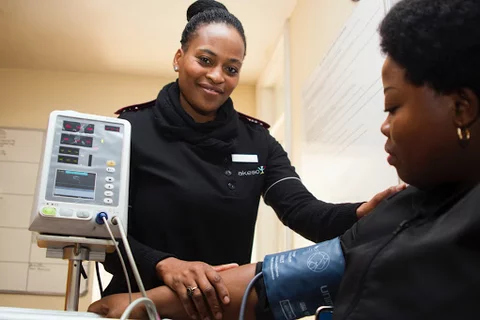Primary Care Services and Quality

Mission
Autistic young adults and their families struggle to find adult primary care providers who understand their needs. The overall goals of the Primary Care Services and Quality research node are to increase life span and maximize quality of life. In order to attain these goals, primary care for Autistic adults needs to improve.
Node Aims
AIM 1: Conduct research that would make services and supports more accessible and attuned to the needs of diverse autistic individuals across the lifespan
- 1-A. Enhance the identification process for neurodivergent individuals from early childhood throughout adulthood
- 1-B. Develop a better understanding of the services that would be helpful to autistic individuals
AIM 2: Eliminate ableism and discrimination among healthcare providers
- 2-A. Develop and test novel methods for improving the education of and dispelling misinformation among future healthcare providers (e.g., through neurodiversity- oriented curricula for healthcare providers in medical school)
- 2-B. Promote self-advocacy among autistic individuals to support them in navigating interpersonal or structural forms of implicit or explicit stigma in the healthcare system.
AIM 3: Developing, pilot-testing, evaluating, and iteratively improving promising system-level interventions that improve the healthcare experience for autistic individuals
- 3-A. Redesign primary care to address the needs of autistic adults and dismantles physical and cultural healthcare for autistic individuals
- 3-B. Pioneer a neurodiversity-oriented approach to healthcare
AIM 4: Promote health equity by addressing autistic individuals’ needs related to gender, race, culture, and social determinants in healthcare
Research Agenda
Autistic adults have a higher prevalence of co-occurring medical conditions, yet experience limited access to high-quality primary and preventive care services throughout the life course. The deficit in primary and preventive care services faced by autistic individuals, as well as the increased prevalence of various chronic medical conditions is related to a range of factors, including a lack of physician training for working with autistic individuals. Interventions are needed to bridge the existing gaps in primary and preventive care and to address the increased prevalence of chronic health conditions in autistic individuals. Care for autistic individuals should incorporate guideline-driven practices provided to the general population in addition to personalized accommodations to improve delivery of care. Specific research priorities for the Primary Care Node include promoting autistic individuals’ self-determination in health care, enhancing primary care provider training, and mental health and psychiatric care.
Additional Priorities
- Education & training of the next generation of primary care providers
- Ongoing work with UCLA medical students to increase disability & neurodiversity-oriented medical education
- Primary Care & Nursing Integration
- Psychiatric Mental Health Nurse Practitioner (PMHNP) training
- Transition-aged youth center grant (ATRP)
- Promoting healthy life outcomes and equity for autistic postsecondary students
Node Resources
Publications:
- Rava, J., Rosenau, KA., Wilkie, K., Bernacki, J., Curcio, E., Kuo, AA. (2023). “The Needle Anxiety Program: A Patient-Centered Initiative for Individuals with Developmental Disabilities”. Cureus 15(7): e42253. doi:10.7759/cureus.42253. https://www.cureus.com/articles/161655-the-needle-anxiety-program-a-patient-centered-initiative-for-individuals-with-developmental-disabilities
- This article provides an overview of the three-tier system and lessons learned in incorporating the system into the clinic.
- Rava, J., Rosenau, KA., Wilkie, K., Curcio, E., Kuo, AA. (2023). “Implementation of a Minimal Sedation Protocol for Patients with Developmental Disabilities and Needle Phobia”. Cureus 15(7): e42154. doi:10.7759/cureus.42154. https://www.cureus.com/articles/163994-implementation-of-a-minimal-sedation-protocol-for-patients-with-developmental-disabilities-and-needle-phobia
- This article shares pilot data from the first year using the minimal sedation protocol (Tier 3) in an outpatient clinic. It also provides details on the intervention process and patient safety.
Webinars:
Node Leaders

